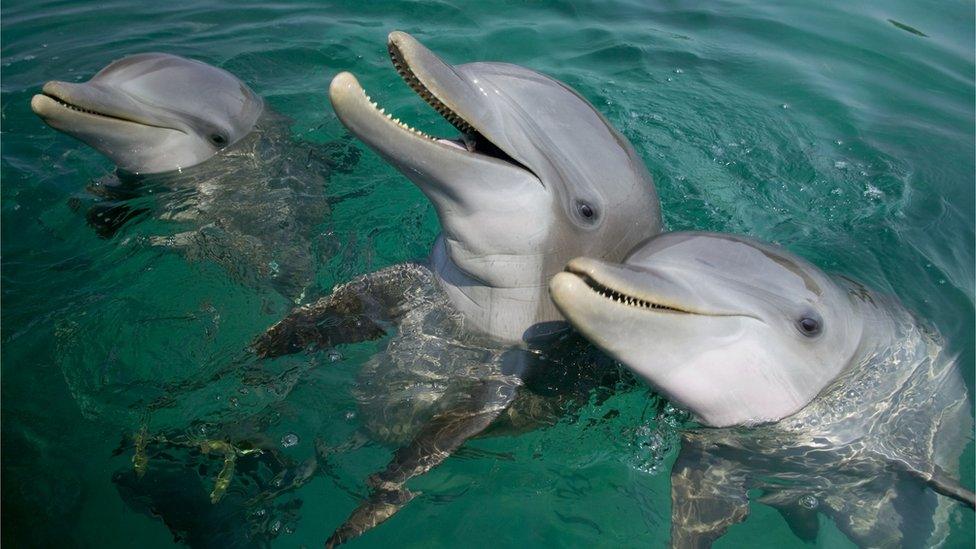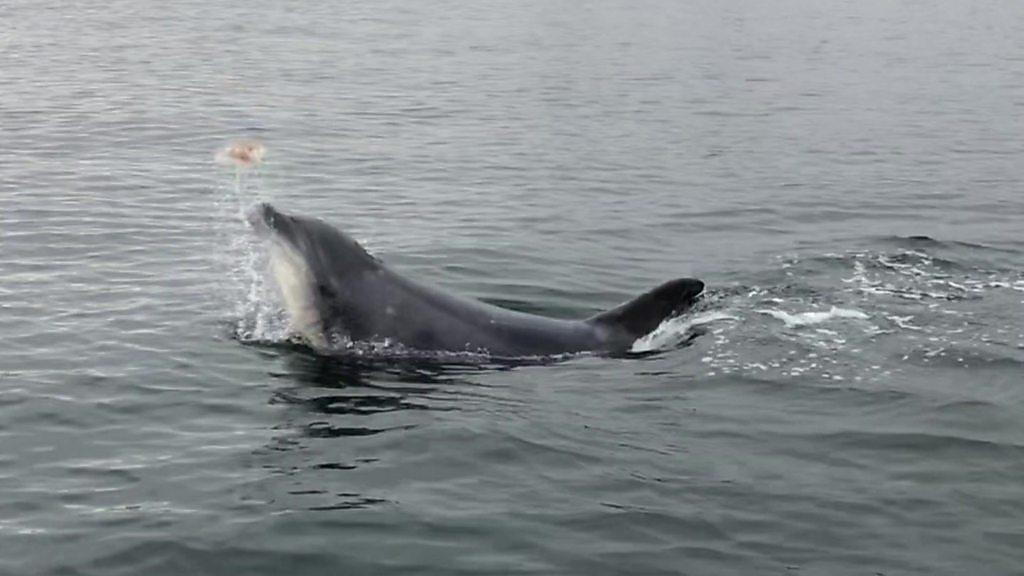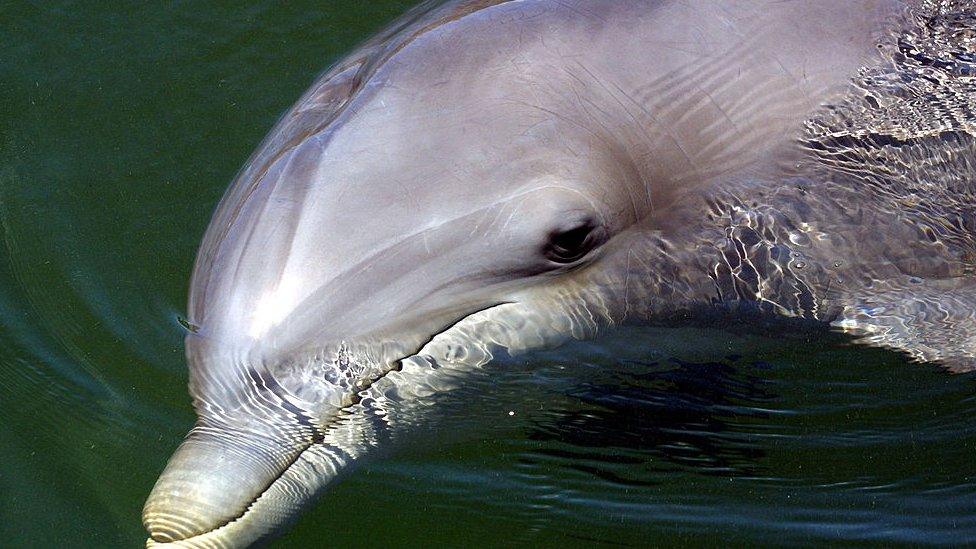Dolphins have different 'accents' just like humans!
- Published

Each bottlenose dolphin has a unique whistle
People around the world can have very different accents depending on where they live.
However, researchers from the University of Sassari (UNISS) in Italy believe the same could be true for bottlenose dolphins!
The aquatic mammals, which are known for their distinct whistles, use the sounds to make themselves known amongst other dolphins and to communicate with one another.
Each bottlenose dolphin has a unique signature whistle, however, scientists now say the features of each whistle are affected by where the dolphins live and the size of their community.
To test out their theory, the scientists from UNISS took a look at the whistles of bottlenose dolphins living within six different communities in the Mediterranean Sea.
They studied 188 hours of dolphin sounds and made a note of key differences, for example the length of the whistles and variations in the pitch. The researchers ended up identifying an incredible 168 distinct whistles and found these were largely influenced by the environment and the number of dolphins within a particular population.
Bottlenose dolphins are known for their curved mouths which make them look like they're permanently smiling!
Check out this dolphin rescue!
One big distinction the scientists found was between bottlenose dolphins living in areas with sea grass compared to those living in areas with muddy sea beds. The mammals which lived in environments with sea grass had shorter, more high pitched whistles in contrast to those living in muddier places.
Smaller dolphin communities also has differences in their whistles compared to the mammals living in larger populations.

Bottlenose dolphins have curved mouths which look like permanent smiles!
The overall findings suggest bottlenose dolphins develop signature whistles that are best suited to their local environment. However, the researchers working on the study worry these could be affected by human activities.
"I would like people to reflect on the importance of the acoustic environment in which dolphins live for the development and maintenance of their communication," Dr. La Manna told Earth.com.
"Human activities, such as commercial shipping and nautical traffic, can severely affect this fundamental aspect of dolphins' life."
Although, researchers have identified some important differences in bottlenose dolphins' signature whistles and what influences these unique noises, further studies will need to be carried out to determine exactly why factors like the mammals' local environment and population play such a big part.
- Published12 August 2019

- Published27 April 2020

- Published5 August 2019

